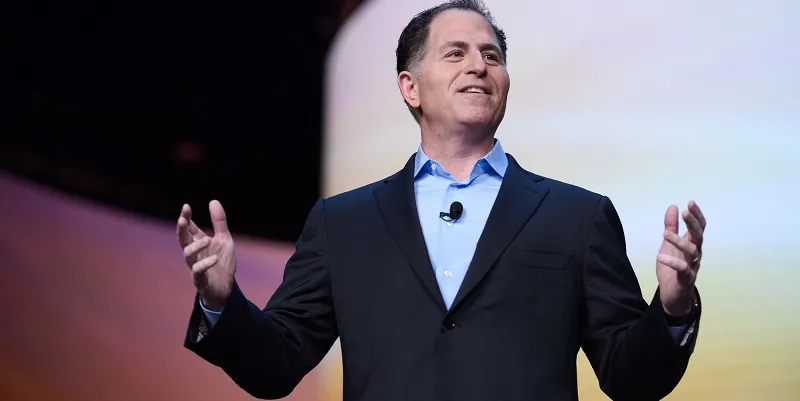Dell chairman says higher data efficiency means better value
60 percent of the world's global corporations want to go to AI-led infrastructure, but only 15 percent want to move ahead with this change.
The world is changing rapidly with new technologies, and Dell Technologies has the ability to merge Internet of Things with a multi-cloud ecosystem and software to drive business outcomes, said Michael Dell, Chairman of Dell Technologies.
“Technology amplifies human creativity.People use it to drive growth in the form of marketing and innovation. Technology strategy is the business strategy,” he said and added that people need to use software, data, IoT and Artificial Intelligence to make faster decisions.
“Companies are using AI to use data efficiently. Now there is 5G networks moving data at faster speeds. The faster we can do it, the better value we derive in our business,” said Dell.

Dell was speaking at Dell Technologies World in Las Vegas, which is the company's annual event showcasing innovations in the company.
He added that given how much data was being generated, by 2020 a city will generate 200 petabyes (1 petabyte = 10,00,000 GB) of new data every day. IoT strategies and edge analytics will converge clouds and different applications in five years.
“Computing will expand to smartphones and IoT. Over 125 billion ARM (leading micro-processor supplier) chips have been shipped, for this you need powerful clouds to compute the data generated by these chips. Customers realise the importance of the cloud where automation means agility and everyone needs to think with the speed of a startup,” said Dell.
The company has 7000 customers working on cloud- and app-based interfaces with flexible consumption models such as pay per usage. “We are investing in AI and Machine learning to reskill 60,000 professionals across the world,” he added.
According to Dell Technologies, an organisation should focus on the following over the next five years.
- Digital Transformation: Adapting to new technologies that can create business outcomes.
- IT transformation: IT being agile to serve business needs.
- Workforce transformation: Organisations that use data will win.
- Security transformation: Paramount to protect consumers.
“Data tells us a mixed story. In all, 50 percent of our customers say, what is the impact of technology on their business in five years. Over 80 percent want to use software, but are worried. So, what does Dell do? We can be their strategic partner and guide them through the human-machines partnership and prepare them for 2030,” said Allison Dew, CMO of Dell Technologies.
Why modern enterprises need to go digital
A Dell EMC study shows 80 percent of the world's enterprises do not understand digital transformation and are caught between implementing IT as a solution to going digital instead of focusing on business transformation. An IDG report says an average enterprise uses 500 IT apps and cloud services, and not all of them collaborate.
So, what does this mean? “Enterprises use only two percent of their data because they lack the infrastructure to deal with volumes of data,” said Ravi Pendekanti, Senior VP, Server Solutions Product Management at Dell EMC.
The world, however, is software defined.
In all, 60 percent of the world's global corporations want to go to AI-led infrastructure, but only 15 percent want to move ahead with this change. “There is a reason for this. Most of them are on legacy infrastructure and cannot move because of that. There are frameworks and tools that are plenty and nobody knows what works. However in the next cycle of changing infrastructure systems, around 25 percent of them will use AI in their systems,” said Ravi.
“Digital transformation is changing companies rapidly. For them to survive they have to go digital because it enables them to reduce costs and improve customer service. You can do that if your infrastructure is powerful enough to meet consumer demands. For example, the service M-Paisa, a mobile based fintech service, in Africa has facilitated 7 million transactions and is changing human progress,” says Brian Humphries, CEO of Vodafone.
The jury is out about AI and the question is only about how nimble are world leaders to get their communities up to speed in going digital.







